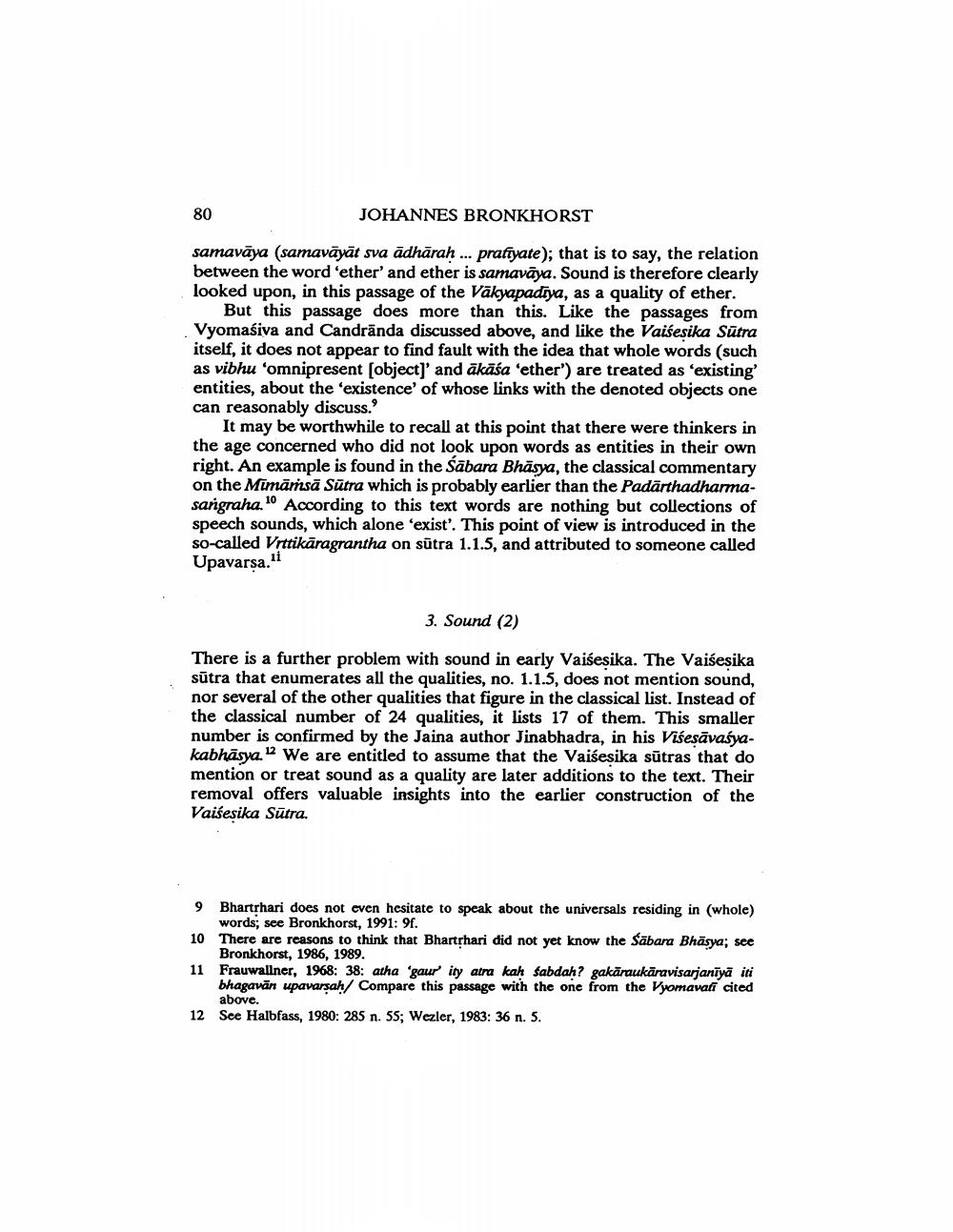Book Title: Studies On Bhartrhari 5 Bhartrhari And Vaisesika Author(s): Johannes Bronkhorst Publisher: Johannes Bronkhorst View full book textPage 6
________________ 80 JOHANNES BRONKHORST samavāya (samavāyāt sva ādhārah ... prafiyate); that is to say, the relation between the word 'ether' and ether is samavāya. Sound is therefore clearly looked upon, in this passage of the Vākyapadiya, as a quality of ether. But this passage does more than this. Like the passages from Vyomaśiva and Candrānda discussed above, and like the Vaiśesika Sūtra itself, it does not appear to find fault with the idea that whole words (such as vibhu 'omnipresent (objects and ākāśa 'ether') are treated as 'existing entities, about the 'existence' of whose links with the denoted objects one can reasonably discuss. It may be worthwhile to recall at this point that there were thinkers in the age concerned who did not look upon words as entities in their own right. An example is found in the Sābara Bhäsya, the classical commentary on the Mimārsā Sūtra which is probably earlier than the Padārthadharmasarigraha." According to this text words are nothing but collections of speech sounds, which alone 'exist'. This point of view is introduced in the so-called Vrttikäragrantha on sūtra 1.1.5, and attributed to someone called Upavarsa. 3. Sound (2) There is a further problem with sound in early Vaiśesika. The Vaišesika sūtra that enumerates all the qualities, no. 1.1.5, does not mention sound, nor several of the other qualities that figure in the classical list. Instead of the classical number of 24 qualities, it lists 17 of them. This smaller number is confirmed by the Jaina author Jinabhadra, in his Viśesāvasyakabhäsya. 2 We are entitled to assume that the Vaiśesika sūtras that do mention or treat sound as a quality are later additions to the text. Their removal offers valuable insights into the earlier construction of the Vaiśesika Sūtra. 9 10 Bhartrhari does not even hesitate to speak about the universals residing in (whole) words, see Bronkhorst, 1991: 9. There are reasons to think that Bharthari did not yet know the Sabara Bhäsya; see Bronkhorst, 1986, 1989. Frauwallner, 1968: 38: atha 'gaurity atra kah sabdah? gakāraukāravisarjanīyā iti bhagavān upavarşah/ Compare this passage with the one from the Vyomavali cited above. See Halbfass, 1980: 285 n. 55; Wezler, 1983: 36 n. 5.Page Navigation
1 ... 4 5 6 7 8 9 10 11 12 13 14 15 16 17 18 19 20
